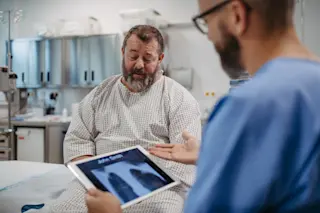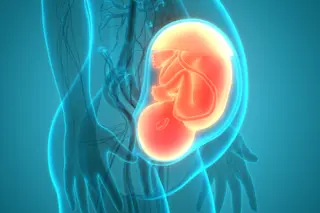By now you've probably stumbled onto Wired's profile of Sergey Brin, and his quest to understand and overcome Parkinson's disease through the illumination available via genomic techniques. I want to spotlight this section:
Not everyone with Parkinson’s has an LRRK2 mutation; nor will everyone with the mutation get the disease. But it does increase the chance that Parkinson’s will emerge sometime in the carrier’s life to between 30 and 75 percent. (By comparison, the risk for an average American is about 1 percent.) Brin himself splits the difference and figures his DNA gives him about 50-50 odds. ... Brin, of course, is no ordinary 36-year-old. As half of the duo that founded Google, he’s worth about $15 billion. That bounty provides additional leverage: Since learning that he carries a LRRK2 mutation, Brin has contributed some $50 million to Parkinson’s research, enough, he figures, to “really move the needle.” In light of the uptick in research into drug treatments and possible cures, Brin adjusts his overall risk again, down to “somewhere under 10 percent.” That’s still 10 times the average, but it goes a long way to counterbalancing his genetic predisposition.
Do you think Brin's chances are really 10 percent? Is he being an objective analytical machine, or is he exhibiting the ticks of systematic bias which plague wetware? This is interesting because when it comes to big-picture extrapolations individuals who come out of the mathematical disciplines (math, computer science, physics, economics, etc.) have a much better ability to construct models and project than those who come out of biology. Biology is dominated by masters of detail. The system-builders only have small niches across the sub-domains, with the exception of evolutionary biology where the system is the raison d'etre of the field. But though biologists lack strategic vision, they are often masters of tactics when on familiar ground. I would like to believe Sergey Brin's estimate of the probability in his case, but I do wonder if biomedical scientists working on Parkinson's are aware of powerful constraints and substantial obstacles which would force one to be less optimistic. I would of course assume that Brin though is aware of constraints, or lack thereof, because he has talked to the relevant researchers. On the other hand, would a biomedical scientist be totally candid with Sergey Brin due to even the silver of a possibility of a research grant of magnificent scope?













